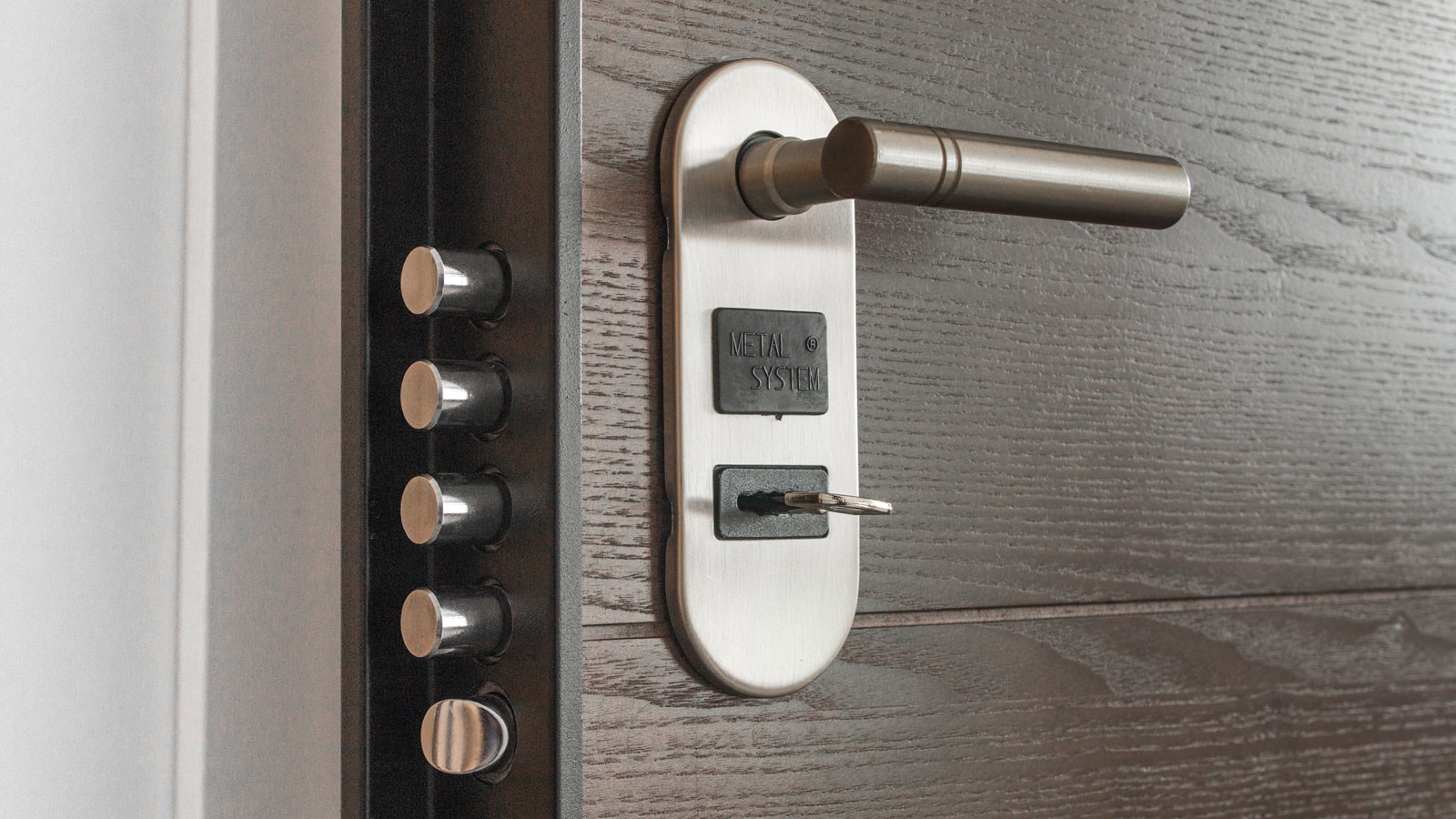Nobody gets into the hospitality industry to become an expert on door locks. Sure, the team here at Goki loves locks, but we know that for most property managers, they’re an afterthought – a happy side bit of property management that you probably think about once, then never again.
As technology evolves and as customers’ expectations and demands change, choosing which door lock is right for your hotel, hostel, or vacation rental has become a lot more complex. There are so many options these days! It can be overwhelming, but it doesn’t have to be. Start here.
This guide to door locks will help you understand the various options available for your property and unlock your decision-making process to ensure whichever option you choose matches customer expectations.
Traditional Deadbolt Model
The hospitality industry certainly has a place for tradition. If you’re running a bed and breakfast from a centuries-old mansion, tradition will be a selling point. A traditional deadbolt lock with its accompanying metal key might be the look you desire.
A luxury brand hotel also might consider the metal key a component of the gravitas that carries the brand name, rather than a flimsy plastic card that inevitably vanishes into someone’s wallet before finding its way to a landfill.
While guests sometimes lose metal keys, keeping replacements handy might only be a small headache if the image and brand are worth it.
The COVID-19 pandemic has dramatically enhanced guests’ fears about contact with potentially contaminated items. As keys are necessarily handed from staff to guests, people are less comfortable with that transaction knowing that the novel Coronavirus can survive on metal surfaces for 1 to 3 days, according to the National Institute of Health.
Many heritage deadbolt locks cannot be retrofitted. However, if you’re serious about moving in the smart key direction, you may be looking at a complete replacement.

Mag Stripe Type
The original successor to the traditional deadbolt, the magnetic stripe lock, commonly known as the “mag stripe,” served the industry for decades as hotels could create a new key card for each guest. This dispensed with the need for expensive replacement keys. Instead, if a key card was lost or failed, the desk simply created a new one.
These cards are relatively easy for guests to keep track of, as they fit in a pocket or wallet much like a credit card does. However, customers often have the issue of leaving their cards in the room and locking themselves out. This means more cards need to be created, which means more waste and more headaches for your staff if they’re not onsite support.
Mag stripes probably are the least reliable option for hotels, hostels, and vacation rentals, as they frequently fail, especially when stored next to a cell phone. Maintenance of the readers also becomes a headache. A new frustration has appeared in recent years as mobile phone apps also can interfere with the locks’ efficiency.
These key cards also carry the same health risk as a metal key, as the coronavirus can survive for up to 72 hours on plastic, per the NIH.

RFID-Enabled Locks
Much like the mag stripe, RFID locks require a key card that can be programmed to match your guests’ registration period. RFID stands for radio-frequency identification, and unlike the mag stripe, guests don’t need to swipe the card — just hold it near the RFID reader to unlock the door. As a result, these locks need less maintenance, as they don’t encounter the friction of swiping.
They do carry some of the same disadvantages of the mag stripe in that a staff member needs to create the cards and hand them to your guest, so they are not COVID-friendly. Cards can also can be lost, forgotten in the room, or stolen.
Though it doesn’t happen often, hackers can trick RFID locks into opening the door, giving tech-savvy crooks access to all of your rooms. RFID locks also might malfunction during a power outage.
Big Lock Makers
If your property has locks from one of the big manufacturers, you could install a chip to make them mobile-accessible. But, again, check with the lock maker for technical details.
These conversions typically require guests to download an app to their mobile device to operate keyless entry. Unfortunately, many consumers are hesitant to download extra apps, which means you’ll still need to provide key cards for these consumers. You’ll want to make sure the expense is worth it if you find guests unwilling to use the app.

Smart Locks
Many good-quality smart locks now are available that provide the kind of keyless, touchless, contactless access that hotels and their guests are looking for during the pandemic.
These locks typically operate by a personal identification number (PIN), which can be sent to guests after registering. You can also provide them with a touchless option that also might require an app. Both of these options allow consumers to bypass the typical face-to-face registration process and go straight to their rooms.
If access is by PIN, make sure your staff and guests know the seriousness of sanitizing PIN pads. App access again creates the issue of whether your guests are comfortable downloading another app.
Goki Smart Locks
Goki smart locks feature both PIN-enabled entry and touchless via a mobile app, so guests have their choice of access. In addition, the mobile app connects through your guests’ Bluetooth system, so they require no access to your wireless network.
Goki smart locks are also treated with a special antimicrobial additive that makes the surface 99% germ resistant.
When this pandemic finally passes, consumers may be programmed to be cautious about human contact and the spread of germs. Moving ahead with contactless registration and check-in procedures will show your guests that you care about their safety and health.
Learn how our smart locks can unlock the full potential of your hotel, hostel, or vacation rental. Click the button below.




Join the discussion 2 Comments